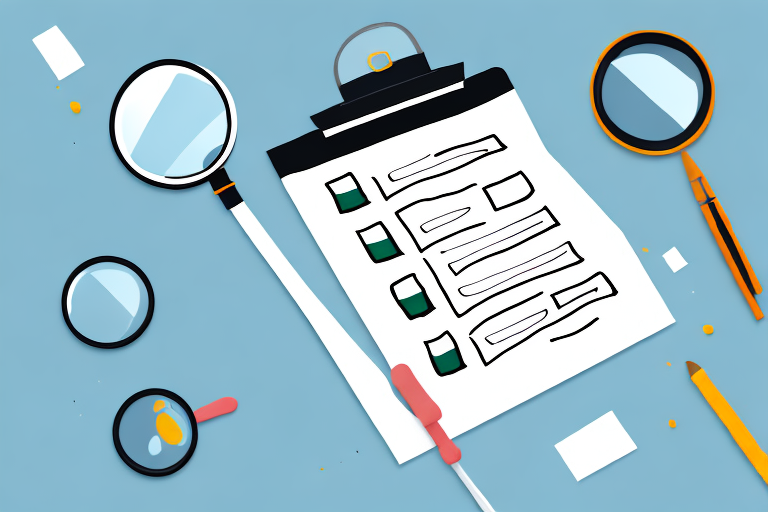Sanctions Regulatory Exam Preparation Checkliste re
Welcome to our comprehensive guide on preparing for a sanctions regulatory exam. This article will provide you with a step-by-step checklist to ensure that your organization is fully prepared to meet the requirements of a sanctions regulatory exam. Understanding and complying with sanctions regulations is of utmost importance for any business operating internationally. Non-compliance can have severe consequences, including significant financial penalties and reputational damage. Therefore, it is crucial to approach a sanctions regulatory exam with thorough preparation and a robust compliance program.
Understanding Sanctions Regulations: An Overview
Before delving into the specifics of exam preparation, it is essential to have a solid understanding of sanctions regulations. Sanctions are legal measures imposed by countries or international organizations to promote national security, foreign policy objectives, or prevent gross human rights violations. These measures restrict or prohibit certain transactions or dealings with countries, individuals, entities, or goods.
Understanding the different types of sanctions, their objectives, and the specific regulations applicable to your business is the first step in preparing for a regulatory exam. Familiarize yourself with the relevant laws and regulations, such as the Office of Foreign Assets Control (OFAC) regulations in the United States or the European Union’s sanctions regulations.
Ensure that you have a clear understanding of the key concepts, including the types of sanctions (e.g., embargo, asset freezes), the entities and individuals targeted, and the prohibited activities or transactions. This knowledge will serve as the foundation for your organization’s compliance efforts and exam preparation.
It is important to note that sanctions regulations can vary significantly between different jurisdictions. Each country or international organization may have its own set of sanctions, with different objectives and specific requirements. Therefore, it is crucial to stay updated on the latest developments and changes in sanctions regulations that may impact your business.
Importance of Compliance with Sanctions Regulations
Compliance with sanctions regulations is not just a legal obligation; it is also crucial for protecting your organization’s reputation, maintaining business relationships, and safeguarding against financial and operational risks. Non-compliance can result in severe penalties, including monetary fines, loss of business opportunities, and even criminal charges for individuals involved.
Additionally, complying with sanctions regulations demonstrates your commitment to responsible business practices, ethical conduct, and adherence to international standards. It enhances trust and credibility among your stakeholders, including customers, business partners, and regulators.
Building a strong compliance culture within your organization should be a priority, with senior management setting the tone from the top and engaging employees at all levels. Investing in compliance can save your organization from costly and reputation-damaging consequences.
Furthermore, compliance with sanctions regulations is essential for maintaining global security and stability. Sanctions are often imposed by governments and international organizations to address threats to peace, human rights violations, or illicit activities such as terrorism, money laundering, and proliferation of weapons of mass destruction. By adhering to these regulations, your organization contributes to the collective effort in combating these global challenges.
In addition to legal and reputational risks, non-compliance with sanctions regulations can also lead to disruptions in supply chains and business operations. Violating sanctions can result in the freezing of assets, restrictions on trade, and the loss of access to critical markets. By ensuring compliance, your organization can mitigate these risks and maintain uninterrupted business operations.
Key Components of a Sanctions Regulatory Exam
When preparing for a sanctions regulatory exam, it is essential to familiarize yourself with the key components that regulatory authorities will assess. While specific exam requirements may vary, the following components are typically included:
1. Policies and Procedures: Examiners will review your organization’s written policies and procedures for sanctions compliance. These documents should outline the processes, controls, and responsibilities for ensuring compliance with sanctions regulations.
2. Risk Assessment: A thorough risk assessment is necessary to identify and understand the potential risks associated with your organization’s activities, clients, and geographical locations. Examiners will assess the effectiveness of your risk assessment process.
3. Training Programs: Your organization’s training programs play a crucial role in ensuring that employees understand their obligations and responsibilities regarding sanctions compliance. Examiners will evaluate the comprehensiveness and effectiveness of these programs.
4. Sanctions Screening Process: A robust screening process is vital for identifying and preventing prohibited transactions or dealings. Examiners will examine your organization’s screening mechanisms, including the use of technology solutions for enhanced screening.
5. Recordkeeping: Accurate and up-to-date recordkeeping is essential for audit purposes and demonstrating compliance. Examiners will review your organization’s recordkeeping practices to ensure their adequacy.
6. Internal Audit Function: The presence of an internal audit function that evaluates sanctions compliance effectiveness is highly valued. Examiners will assess the scope and quality of your internal audit function and the remediation measures taken.
7. Remediation Actions: Examiners will evaluate whether your organization has taken appropriate remediation actions in response to any regulatory findings or deficiencies identified in the past.
8. Documentation and evidentiary support: Prepare all relevant documentation, including policies, procedures, risk assessments, training records, and audit reports, for review by examiners.
9. Mock Exams: Conducting mock exams can help identify areas of improvement and enhance your organization’s readiness for the actual regulatory exam. Examiners may also request evidence of the corrective actions taken based on the findings of mock exams.
10. Continuous Monitoring and Adaptation: Finally, ensure that your organization consistently monitors developments in sanctions regulations and adapts its compliance program accordingly. Examiners will be interested in your organization’s ability to adapt to evolving regulatory requirements.
11. Compliance Reporting: Examiners will expect your organization to have a robust compliance reporting system in place. This includes regular reporting on sanctions compliance activities, issues, and remediation efforts to senior management and the board of directors.
12. Third-Party Due Diligence: If your organization engages with third parties, such as vendors, suppliers, or business partners, examiners will assess the effectiveness of your due diligence process in evaluating their sanctions compliance. This includes conducting risk assessments, screening, and ongoing monitoring of third-party relationships.
Preparing for a Sanctions Regulatory Exam: Where to Start
Now that you have a clear understanding of the key components of a sanctions regulatory exam, it is time to start the actual preparation process. Here are some essential steps to consider:
1. Conduct a Self-Assessment: Assess your organization’s current sanctions compliance program against the key components mentioned earlier. Identify any deficiencies or areas for improvement that need to be addressed before the exam.
2. Establish a Project Team: Create a dedicated project team responsible for driving the exam preparation process. This team should include individuals with expertise in sanctions compliance, internal audit, legal, and relevant business units.
3. Develop a Project Plan: Create a detailed project plan that outlines all the tasks, milestones, and responsible parties. Prioritize tasks based on their criticality and allocate sufficient time and resources for each.
4. Engage External Experts: If necessary, consider engaging external experts or consultants with deep knowledge and experience in sanctions compliance. They can provide guidance, support, and independent assessments to enhance your organization’s readiness for the exam.
5. Implement Remediation Measures: Address any deficiencies or areas for improvement identified through the self-assessment. Update policies, procedures, and training programs, and enhance controls and monitoring mechanisms as needed.
6. Conduct Training and Awareness Programs: Ensure that all employees are well-informed about their individual obligations and responsibilities regarding sanctions compliance. Offer targeted training and awareness programs to different business units based on their specific roles and risk exposures.
7. Document Your Compliance Efforts: Keep detailed records of all compliance-related activities, including training sessions, internal communications, risk assessments, and corrective actions taken. These records will serve as evidence during the regulatory exam.
8. Conduct Internal Audits: Regularly conduct internal audits to evaluate the effectiveness of your sanctions compliance program. Address any deficiencies or findings promptly and implement necessary remediation measures.
9. Engage with Regulators: Establish open lines of communication with regulatory authorities involved in the exam process. Seek clarification on any areas of uncertainty and proactively address any potential issues or concerns.
10. Stay Informed: Continuously monitor relevant sanctions regulations and stay updated on any changes. This will help your organization stay ahead and proactively adapt its compliance measures.
By following this comprehensive checklist and investing time and effort in preparing for a sanctions regulatory exam, your organization will be well-equipped to demonstrate its commitment to compliance and navigate the complex sanctions landscape.
11. Conduct Mock Exams: Simulate a regulatory exam by conducting mock exams internally. This will help identify any gaps or weaknesses in your organization’s preparation and allow you to make necessary adjustments before the actual exam.
12. Review Previous Exam Findings: Take the time to review any findings or recommendations from previous regulatory exams. Use this information to improve your sanctions compliance program and address any recurring issues.
Continuously Monitoring and Adapting to Evolving Sanctions Regulations
The ever-changing nature of sanctions regulations requires organizations to continuously monitor and adapt their compliance programs. While passing a regulatory exam is a significant achievement, it is crucial to maintain ongoing compliance and address emerging risks.
Regularly review and update your organization’s policies, procedures, and training programs to align with evolving regulations and industry best practices. Stay informed about emerging sanctions regimes, changes in designated entities or individuals, and new methodologies for sanctions evasion.
Consider participating in industry forums, attending relevant conferences, and engaging with external experts to stay abreast of the latest developments. Foster a culture of continuous improvement and encourage employees to report any potential sanctions-related concerns or violations.
As a responsible organization, it is your duty to ensure compliance with sanctions regulations and protect your business from significant risks. Through meticulous exam preparation, ongoing monitoring, and continuous improvement, you can build a robust sanctions compliance program that safeguards your organization’s interests and maintains its integrity in the global marketplace.
Implement a robust sanctions screening process to ensure that your organization is effectively identifying and mitigating potential risks. This includes conducting regular screenings of customers, suppliers, and business partners against relevant sanctions lists and conducting enhanced due diligence on high-risk entities.
Stay updated on the latest technological advancements in sanctions compliance. Utilize automated screening tools and software solutions to streamline your compliance processes and enhance efficiency. Leverage artificial intelligence and machine learning algorithms to improve the accuracy and effectiveness of your sanctions screening efforts.







